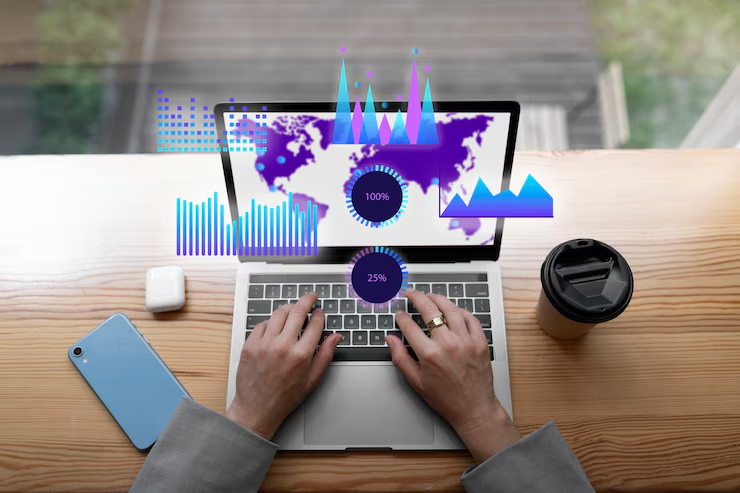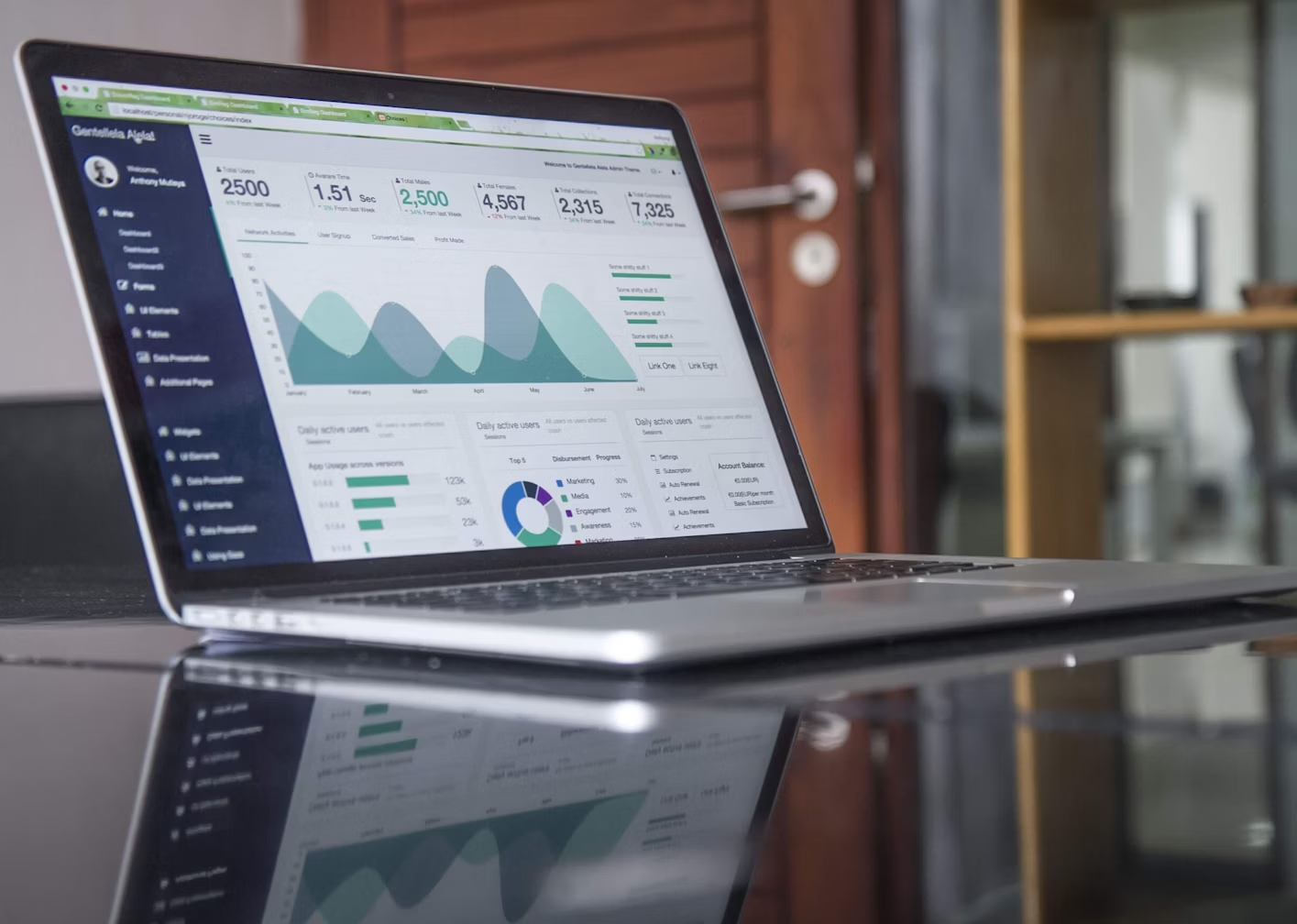Digital Analytics for Marketing: A Comprehensive Guide

Introduction
Customer manners and measuring marketing efforts have become paramount in today’s fast-paced digital landscape. Digital analytics for marketing offers a way to decipher complex data and transform it into actionable insights. Businesses can leverage various tools and techniques to enhance their strategies, optimize campaigns, and ultimately drive growth.
What is Digital Analytics?
Digital analytics analyzes data from digital channels to understand user manners, improve the customer experience, and optimize marketing strategies. This encompasses data collection, measurement, analysis, and reporting of web traffic and user interactions.
The Importance of Digital Analytics in Marketing
Enhanced Decision-Making
Digital analytics provides marketing professionals with critical data to make informed decisions. By analyzing trends, understanding customer preferences, and identifying successful strategies, businesses can allocate resources more effectively and tailor their marketing efforts to meet customer needs.
Improved Customer Insights
With digital analytics, marketers gain deeper insights into customer manners, preferences, and pain points. This information is invaluable for creating personalized marketing campaigns that resonate with the target audience and foster customer loyalty.
Optimization of Marketing Campaigns
Data-driven insights enable marketers to refine their campaigns for better performance. Businesses can adjust their real-time strategies to achieve optimal results by continuously monitoring and analyzing campaign metrics.
Tools for Digital Marketing Analytics
Several tools are available for marketers to collect and analyze digital data. Some of the most popular ones include:
Google Analytics
Google Analytics is a robust tool that provides comprehensive insights into website traffic and user behavior. It allows marketers to track various metrics, set goals, and generate detailed reports. Customizing Google Analytics reporting is crucial for tailoring insights to specific marketing objectives.
Adobe Analytics
Adobe Analytics offers advanced features for data collection, analysis, and visualization. It helps marketers understand customer journeys across multiple channels and devices, providing a holistic view of user interactions.
HubSpot
HHubSpot’sanalytics tools are integrated with its marketing platform, offering insights into website performance, campaign effectiveness, and lead generation. These tools are particularly useful for inbound marketing strategies.
SEMrush
SEMrush is an all-in-one digital marketing tool with SEO, content marketing, and competitive analysis features. It helps marketers track keyword rankings, analyze competitors, and optimize content for better visibility.
How to Use Google Analytics for Digital Marketing
Google Analytics can be a powerful ally in your digital marketing arsenal. Here to leverage it effectively:
- Set Up Goals and Conversions: Define what actions you want users to take, such as making a purchase or signing up for a newsletter, and set up goals to track these conversions.
- Analyze Traffic Sources: Understand where your traffic is coming from (organic search, paid search, social media, etc.) to determine which channels are most effective.
- Track User Behavior: Use metrics like bounce rate, session duration, and pages per session to gauge user engagement and identify areas for improvement.
- Segment Your Audience: Create segments to analyze specific groups of users, such as new vs. returning visitors or users from different geographic locations.
- Custom Reports: Customize reports to focus on the metrics that matter most to your business objectives.
Customizing Analytics Reporting Technology
Customizing your analytics reporting technology allows you to focus on the metrics that align with your business goals. Here are some steps to customize your reporting:
- Define Key Performance Indicators (KPIs): Identify the KPIs that are most relevant to your marketing goals.
- Create Custom Dashboards: Use tools like Google Data Studio or Tableau to create dashboards that visualize your KPIs clearly and concisely.
- Automate Reporting: Set up automated reports to be delivered to your inbox or shared with your team regularly.
- Integrate Data Sources: Combine data from various sources (e.g., social media, email marketing, CRM) to get a comprehensive view of your marketing performance.
Benefits of Digital Analytics for Marketing Professionals
- Enhanced ROI: By understanding what works and doesn’t, marketers can allocate their budget more effectively, resulting in a higher return on investment.
- Targeted Marketing: Digital analytics enables more precise targeting, ensuring marketing messages reach the right audience at the right time.
- Improved Customer Experience: Businesses can make informed decisions by analysting user manners to enhance the customer experience on their websites and digital platforms.
- Data-Driven Strategy: Decisions backed by data are more likely to succeed based on user Manners and trends rather than assumptions.
FAQs
What is the role of digital analytics in marketing?
Digital analytics helps marketers understand user manners, optimize campaigns, and make data-driven decisions to improve marketing effectiveness and ROI.
How can Google Analytics improve my digital marketing efforts?
Google Analytics provides insights into website traffic, user manners, and conversion rates, allowing marketers to refine their strategies, target the right audience, and measure campaign performance.
What are the key metrics to track in digital marketing analytics?
Key metrics include website traffic, bounce rate, conversion rate, customer acquisition cost, and return on investment (ROI).
Which tools are best for digital marketing analytics?
Popular tools include Google Analytics, Adobe Analytics, HubSpot, and SEMrush, each offering unique features to analyze and optimize digital marketing efforts.
How do I customize analytics reports for my marketing campaigns?
Define your KPIs, create custom dashboards, automate reporting, and integrate data from various sources to comprehensively view your marketing performance.
Facts and Statistics
- According to a recent survey, 76% of marketers use data to drive decisions, highlighting the importance of analytics in modern marketing.
- Companies that use data-driven strategies are six times more likely to be profitable year-over-year.
- Google Analytics is the most widely used web analytics tool, with over 29 million websites relying on its insights.
Conclusion
Digital analytics for marketing is no longer optional but necessary in the digital age. By leveraging tools like Google Analytics, Adobe Analytics, HubSpot, and SEMrush, marketers can gain valuable insights, optimize their strategies, and achieve better results. Embracing a data-driven approach ensures that marketing efforts are effective and efficient, ultimately driving business growth.
By understanding and implementing digital analytics, marketing professionals can significantly enhance their strategies, resulting in improved performance and higher ROI.
National Design Consultancy: Crafting Excellence in Design



